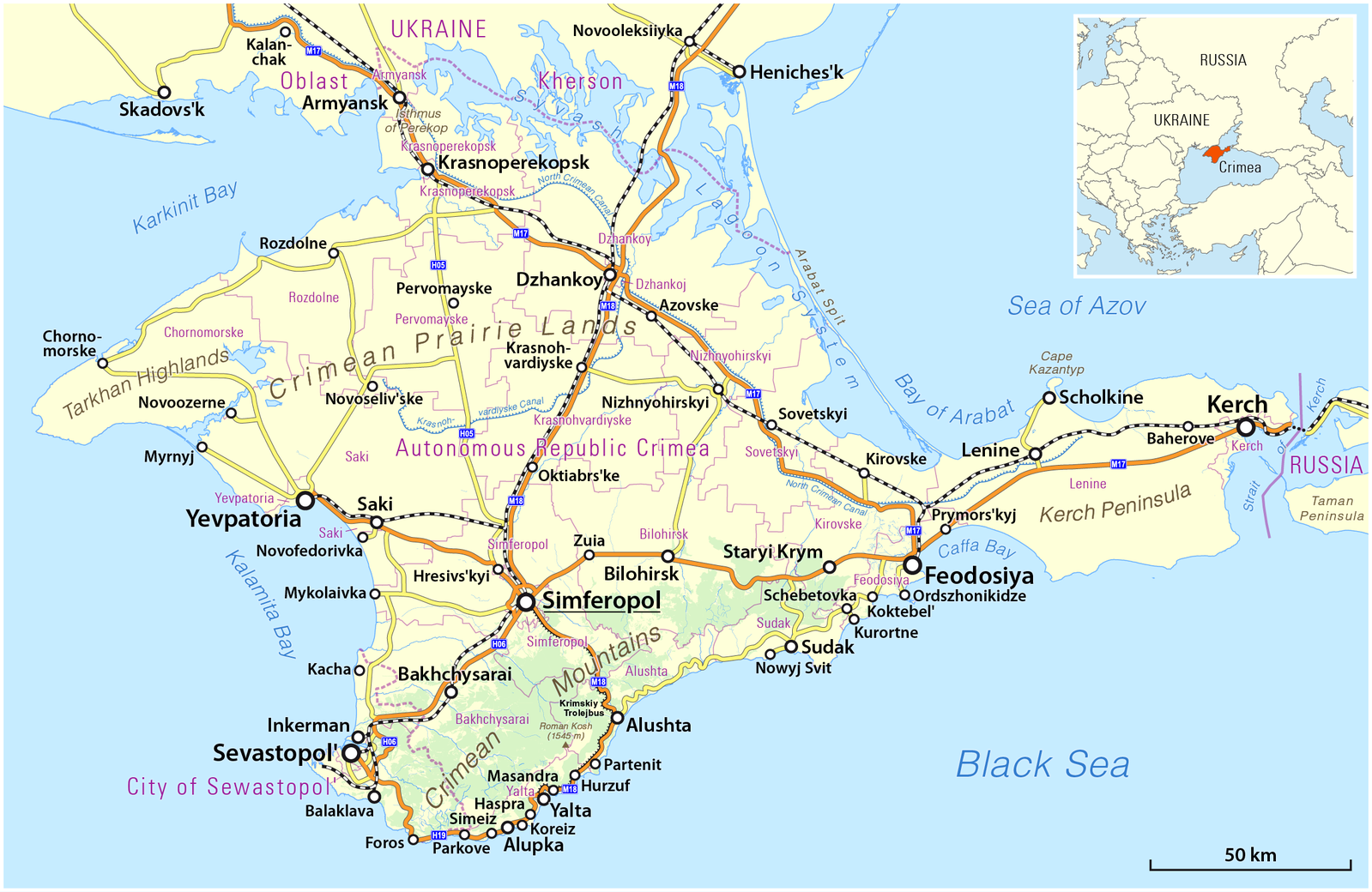
Amnesty International states in a report issued March 18 that during 10 years of illegal occupation, Russia has attempted to reshape the demography of the Crimean Peninsula. It has also suppressed Ukrainian and Crimean Tatar identities through “restrictions on education, religion, media, representative institutions, [the] judicial system, and cultural celebrations.”
A census conducted by Ukraine in 2001 found that of the total of 2,401,209 inhabitants and 125 ethnicities residing on the peninsula, ethnic Russians made up the largest group at 60%, followed by Ukrainians (24%) and Crimean Tatars (12%). Following Russia’s annexation of Crimea in 2014, Russian authorities carried out a census in September of that year, which has not been recognized by the government of Ukraine. It recorded an overall decrease in the population, but found an increase in the proportion of the Russian population to 65%, and a significant decrease of the Ukrainian and Crimean Tatar populations, which fell to 15% and 10%, respectively. Amnesty found that these figures are inconsistent with even the highest estimates for residents who simply fled the peninsula in 2014. Amnesty thus attributed the drop in figures to “ethnic Ukrainians now choosing or feeling compelled to identify as Russian.” After annexation, all non-Russian residents were given Russian citizenship unless they “formally opted out.” Opting out puts the “foreigner” in a disadvantaged position regarding “economic, social, cultural, political and civil rights.”
Amnesty also noted how a Russian curriculum has been imposed on schools in the region, restricting the Ukrainian language. Nine percent of children were taught in Ukrainian prior to annexation, with that number falling to less than one percent today. The report found that the Crimean diocese of the Orthodox Church of Ukraine “has effectively ceased to exist” following eviction of its Simferopol cathedral in 2023. Other minority religions have been affected as well, including the region’s Muslim and Jehovah’s Witness communities. A Jehovah’s Witness in 2021 was sentenced to six and a half years in prison, as the religious group is considered an “extremist organization.” Finally, local Ukrainian-language media, including radio, television and print, have been jammed or taken off the air, and replaced by Russian media, leaving Crimea “severely deprived of information from the rest of Ukraine.”
Amnesty called for Russia to cease its violations of international humanitarian law in all of Crimea. In Moscow, meanwhile, celebrations were held commemorating the 10 years of Crimea’s annexation.
From Jurist, March 19. Used with permission.
Map via Wikimedia Commons




